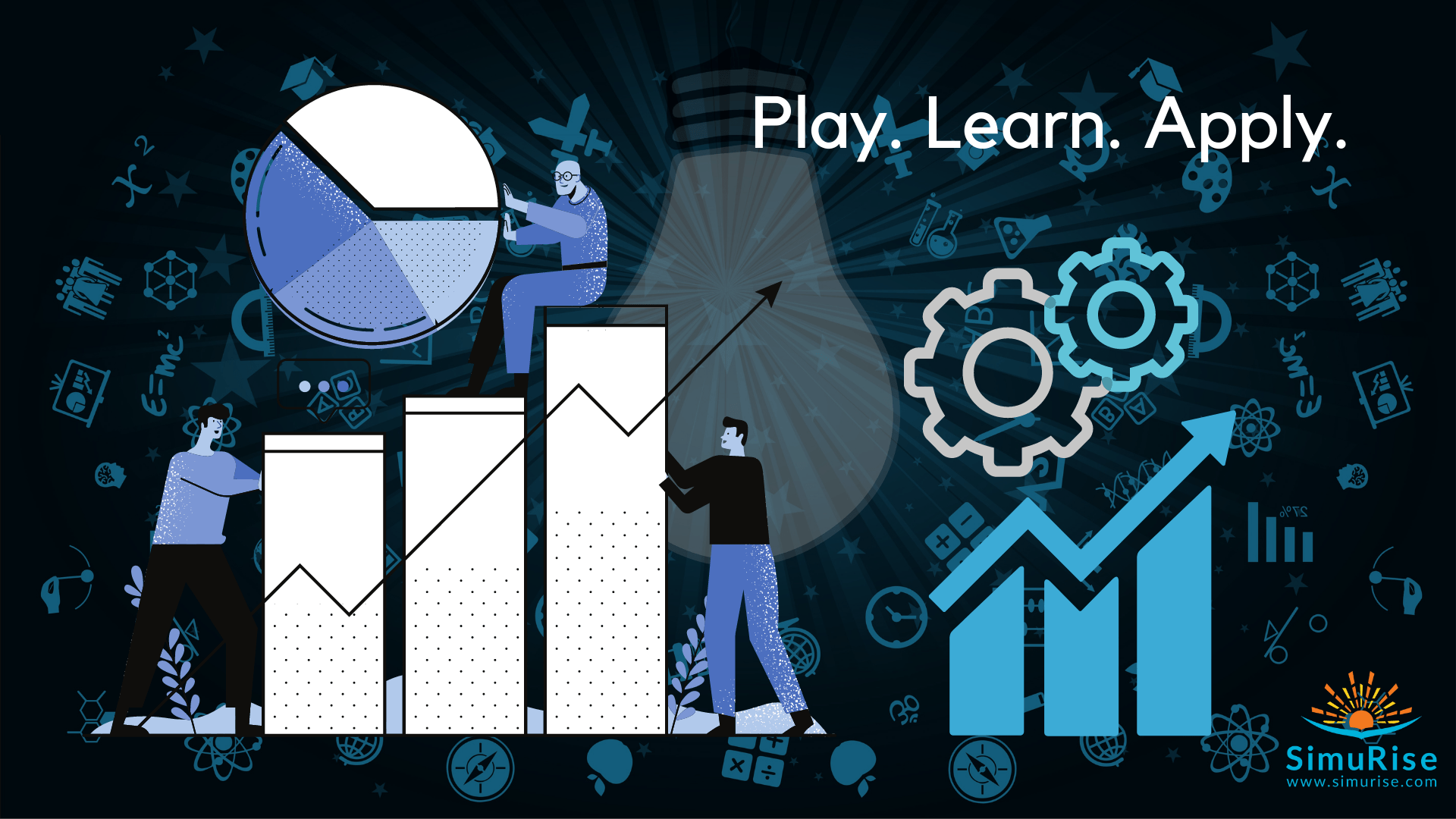Game-based Learning can be fun, effective and experiential. Most organizations have a learning journey in place to develop the skills, mindsets and competencies of their employees which, at times, makes it difficult to integrate games or business simulations into their learning journeys.
Furthermore, organizations using stand-alone serious games for training purposes often find that games under-perform. It is prudent for organizations to consider how existing and new training technologies can work together to support specific learning and development objectives. Integrating games into existing learning frameworks can be very effective. At a more granular level, bolting relevant games or game mechanics onto existing eLearning training content can improve the engagement value of the content and re-monetize legacy content for the organization.
Traditional forms of training, including eLearning, are no longer engaging corporate workforces. New models of training, more relevant to the workforce of today and tomorrow need to be explored. Games-based learning is one such model. There is empirical evidence to support its learning effectiveness across all three domains of learning but more research is required.
Early adopters of serious games, mainly large organizations, are using them for training, marketing and recruitment purposes. Improved efficiencies have been noted across these three processes in terms of employee engagement, motivation and transfer of learning.
So, what are the benefits of integrating game-based learning into an organization’s learning journey? Let’s find out…
Motivation & Engagement
Motivation and engagement are key drivers of learning. Learning designers use motivation theories and motivation models as part of their frameworks for effective learning. One of the many affordances of serious game environments is that they dynamically create the appropriate state of flow for the learner, ensuring that they are always operating within their personal zone of ability and are intrinsically motivated as a consequence.
Experiential Learning
Effective learning occurs through authentic activities and contexts. Game-based learning facilitates this type of learning, enabling learners to solve real-world problems in contexts similar to those in which they will arise. The player (learner) is an apprentice in the game environment which teaches appropriate behaviors and expedites the acquisition of skills. Through the provision of continuous feedback and guidance, the system helps the learner build on skills and behaviors mastered in previous levels.
Over and above the usual instructional strategies used to teach concepts, games facilitate experiential learning. Learners can experience the concept first hand for themselves through cause and effect scenarios based on their understanding of the concept.
Knowledge-Sharing
A research conducted in 2011 found that trainees who used the game-based learning approach had 20% higher confidence that they had mastered the learning and could perform the tasks on the job.
A considerable amount of training in organizations involves declarative (factual) knowledge. For employees this type of learning can be boring and un-engaging. What does a games-based learning approach do more effectively in terms of learner engagement than conventional eLearning courses for this type of content? Games provide a narrative structure that helps encode facts in memory more effectively than other non-game instructional strategies. The narrative effect in a game can also facilitate elaboration – the linking of prior knowledge to new facts.
Over and above the usual instructional strategies used to teach concepts, games facilitate experiential learning. Learners can experience the concept first hand for themselves through cause and effect scenarios based on their understanding of the concept.
Problem Solving & Decision Making
Problem solving skills are valuable skills within a workforce. They contribute to an organization’s competitive edge in the marketplace enabling them to be agile and respond quickly to change. There is a growing body of evidence to support the use of games-based learning in the development of critical thinking and problem solving skills and to suggest that after engagement and motivation, this is possibly the most powerful pedagogical application of games-based learning.
Games are ideal environments in which to exploit this instructional strategy to its full potential, enabling learners to manipulate variables and to synthesize knowledge in order to solve problems.
Values & Behaviors
The real power of games is that they can simultaneously, and positively, impact both the cognitive and effective domains. The effective domain deals with feelings, attitudes and values. If a learner has a positive attitude towards learning, as they do when learning through well-designed games, they should learn more effectively and intrinsic motivation should be higher.
Tapping into the effective domain can also be used to effectively change behaviors and attitudes. For example, games can be used effectively to alter attitudes and behaviors to training in the case of employees and to influence purchasing decisions of existing or future customers when used as a marketing tool.
Organization-Wide Implementation
The affordances of serious games for corporate training and development across many subject domains are increasingly being recognized. Serious games can be used for training throughout the employee lifecycle from recruitment through to onboarding and onto leadership training.
Organizations are finding that the application of a game-based learning approach to corporate training is helping them increase employee engagement and drive performance over and above that previously delivered by traditional training approaches.
Serious games provide employees with a compelling context-relevant storyline, achievable goals, constant feedback on their progress and rewards such as achievement badges and public recognition. They also provide employees with opportunities to fail, learn from their mistakes and try again in safe environments.
Going one step further, game analytics dashboards can provide organizations with the ability to collect and analyze employee performance data, enabling them to track performance on an ongoing basis and identify where and when performance support and intervention is needed.





